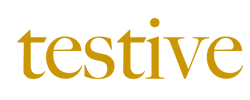 A Q&A with Testive co-founder and CEO Miro Kazakoff. The Cambridge, Massachusetts–based company, which is an alum of Tech Stars Boston, was founded in the Summer of 2011 and closed a $500K Seed funding round in early-December from a group of Boston-based Angel investors.
A Q&A with Testive co-founder and CEO Miro Kazakoff. The Cambridge, Massachusetts–based company, which is an alum of Tech Stars Boston, was founded in the Summer of 2011 and closed a $500K Seed funding round in early-December from a group of Boston-based Angel investors.
SUB: Please describe Testive and your value proposition.
Kazakoff: Testive was created to make tests suck less. We’ve just begun to tap the ways computers and advanced mathematics can be used to make test taking and test prep more interesting, more accurate and better tied to actual learning. Our core technology is our TurboTest platform. It powers all of our products and makes sure that students taking any test are always answering questions right at the edge of their abilities. With our technology we can both predict how you would score on a traditional exam much more quickly than traditional tests, or we can help improve that score by giving you the right training questions.
SUB: Who are your target markets and users?
Kazakoff: We focus on two markets. The first one is students preparing for life-changing tests. Our SAT test prep site is www.satHabit.com. It uses our technology to rapidly improve student scores and show them their progress along the way.
Our second customer is educational companies looking to increase the value of content they already have. We create short TurboTests for them that use their own existing content to rapidly predict students’ scores on high-stakes tests. Our clients usually use those tests for marketing to consumers or to sell to schools.
SUB: Who do you consider to be your competition?
Kazakoff: Our biggest competition at one end of the test prep space is books. They are cheap and have a long tradition, but they are inflexible and not well customized to each student. On the high end, we compete with private tutors. Tutors are highly personalized but can be hard to schedule and are very expensive. SAT Habit provides a highly customized test prep experience, but without the cost or inconvenience of organizing a tutor.
SUB: What differentiates Testive from the competition?
Kazakoff: Our technology was built from the ground up to adapt and customize itself to the use. Unlike other systems where the adaptivity is an afterthought, for us it’s fundamental to everything that we do.
SUB: When was the company founded and what were the first steps you took in establishing it?
Kazakoff: The company was founded in July 2011, after an exploration process by two of our co-founders, me and Tom Rose. Tom had been working on developing our adaptive algorithms while we were both students at MIT. We created the company shortly after graduating. The first major thing we did was to validate that our algorithms actually worked in the real world. We did a pilot study at a local high school where we had 100 students take a full-length SAT test and, in place of the SAT’s experimental section, we gave them our TurboTest. Then we correlated the results to validate that our test was predictive. As we began to build a consumer facing product, we were joined by our third co-founder, Facundo Chamut, who leads our technology development.
SUB: What was the inspiration behind the idea for Testive? Was there an ‘aha’ moment, or was the idea more gradual in developing?
Kazakoff: Tom spent his entire career prior to graduate school as an educator, so he was really the driver of our core technology and focus. Early in the company we spent a lot of time calling people involved in testing and test preparation to understand their businesses and needs. We conducted about 40 calls in one two-week period. We repeatedly heard that that it is very hard to get people started in the test prep process because the initial diagnostics take so long, and then it is hard even after that to keep people engaged because you can’t show their score rising without giving them long practice tests. We realized that we could address both of these problems through technology.
SUB: How did you come up with the name? What is the story behind it?
Kazakoff: Dharmesh Shah, an investor in Testive, has a great blog post called ‘17 Mutable Suggestions for Naming a Start-up.’ I think we managed to hit about 13 of them. We named the company by reading his post and then brainstorming on a white board. I think the domain for every single name we first came up with was already owned by someone else. Thankfully constraints breed creativity, and we came up with Testive around name 100 or so. It probably wasn’t a coincidence we were sharing an office with an edtech company called Socrative at the time.
SUB: What have the most significant obstacles been so far to building the company?
Kazakoff: I think most businesses boil down to the same few obstacles. Can you create a compelling enough offering that it costs you less to get new customers in the door than the value created for the user? That value determines what you can charge for the product. We consider the offering to be the entire experience of the product from the marketing all the way through referring to other people after you are done using it. Specifically for us, one obstacle in education is that the person using your product isn’t usually the person who pays for it. We build for students, but we know that the checks are being written by schools, parents and other companies.
SUB: You recently raised $500K in Seed funding. What are your plans for the funds?
Kazakoff: Raising a round of funding allowed us to focus full-time on the company and scale back on the private tutoring we had been doing to bootstrap the company. Our primary
goal with the round is to build out our core products and show that we can raise student SAT scores with SAT Habit.
SUB: Why was this a particularly good time to raise funding?
Kazakoff: We were part of the TechStars accelerator program in Boston, so we used the momentum from that program to help us raise and close our round. We met most of our investors as part of the TechStars experience.
SUB: How does the company generate revenue or plan to generate revenue?
Kazakoff: We currently generate revenue by creating and licensing white label versions of our TurboTest technology.
SUB: What are your goals for Testive over the next year or so?
Kazakoff: A year is a long time in our world, but our near-term focus is to demonstrate the value of SAT Habit and show that it can help raise student scores.
Testive – www.testive.com











